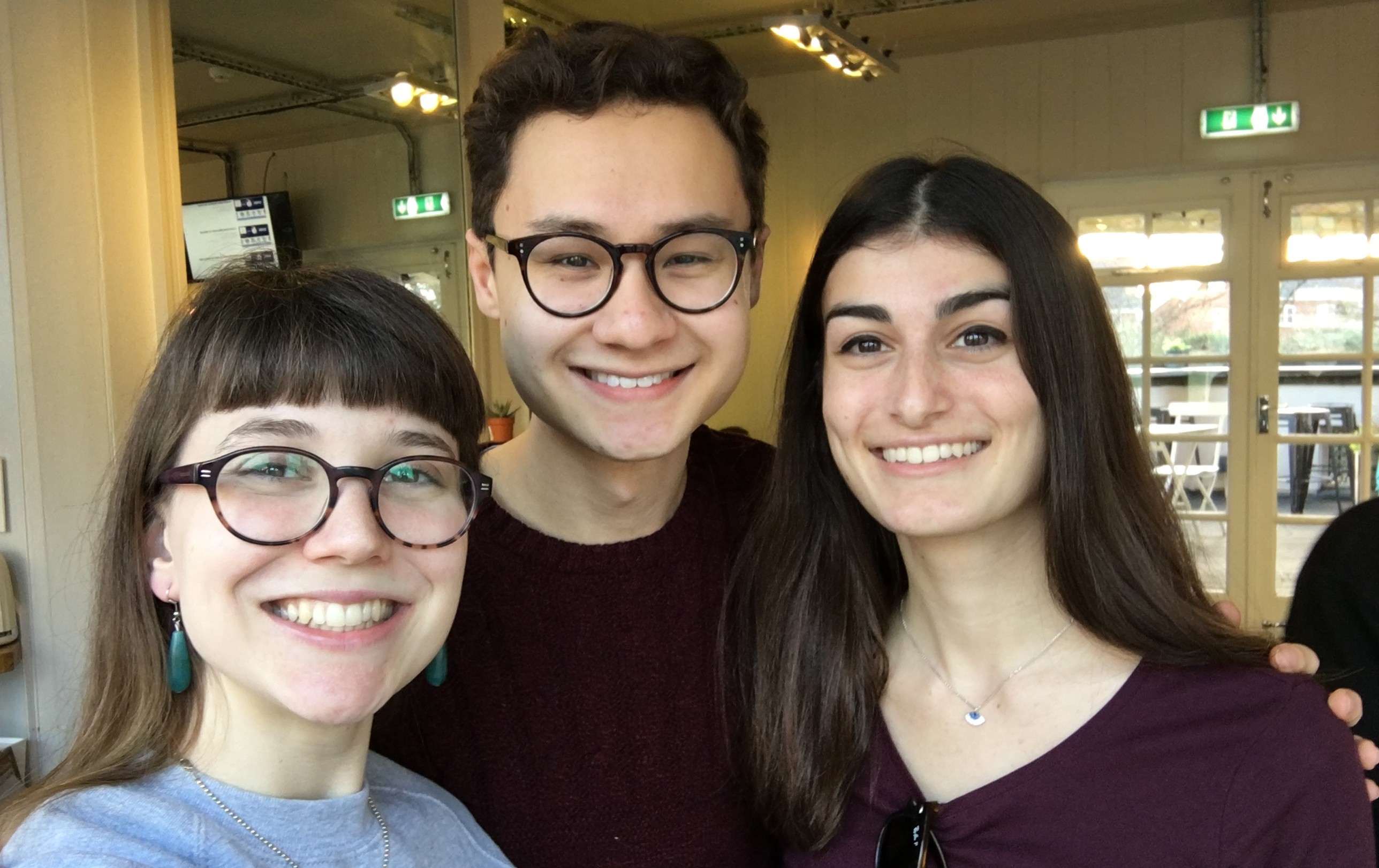Celebrating diversity at Warwick: an interview with Jetlagged
I sat down with Irene Zahariadis and Dominic Lam, the co-hosts of RAW’s show Jetlagged to talk about their show, diversity, multiculturalism, and Warwick’s international student body. The show was born out of their shared “experiences from having two different heritages”. Dominic is British-Hong Kong Chinese, and Irene is Greek-American. “There weren’t a lot of shows that talked about diversity, and we thought that Warwick as a campus in general is pretty diverse. We thought that it would be good, especially as we come from different backgrounds, to put that on a platform and talk about it.”
The show was born out of their shared ‘experiences from having two different heritages’
Indeed, according to the UK Council for International Student Affairs (UKCISA), Warwick ranked in the top 20 institutions in the country for recruiting international students. Of the 26,531 enrolled undergraduate and postgraduate students in this academic year (2017-18), 14,320 are “overseas” students. This doesn’t account for those with dual citizenships and mixed heritage.
“We wanted to get people on from all walks of life and to allow them to talk about their experiences and ask them why they’ve decided to come here.” In addition to giving a platform to our thriving international community, Irene and Dominic are also interested in “why people here decide to go to other countries to study”.
We wanted to get people on from all walks of life and to allow them to talk about their experiences and ask them why they’ve decided to come here
Irene invited some of her Greek friends to come onto the show. They all went to international schools in Greece, and discussed their experience of “what it was like growing up in that country but at the same time going to International school where you’re encouraged not to have a Greek mentality.” In her friends’ school, Greek students are “not allowed to speak Greek”. Their conversation shed an interesting light on the relationship between the UK and educational outposts abroad (for example, Irene’s school was connected to the British embassy and founded by a Brit).
“We didn’t think a lot of people knew that in a lot of these countries there are international schools that have these rules,” and Irene thought it was important to elevate her friend’s experience of “what it is like to move to the country that sponsored that school, and then for Brexit to happen and all of a sudden you’re being told you have to go back.” Undoubtedly we will see more and more stories like this as Brexit continues, and the diversity of our universities will certainly suffer if students feel unwelcome in this country.
The diversity of our universities will certainly suffer if students feel unwelcome in this country
“We feel that there are so many different groups at Warwick that are connected, and it’s good to bring these different voices together.” Although, they regret that they haven’t had an even broader range of guests, as many of them have been European, “we have tried to reach out to people and not just have our own friends on.” They would particularly “love to have people on from Asia or Africa” to talk about their experiences.
The duo sometimes struggle to get people in front of the microphone, as many are nervous about being on the radio. “There is a lot of anxiety about going on the radio,” Dominic tells me, “I’ve equally found that as soon as they do come on, they love it and want to come back. Radio is an interesting medium as you don’t have an audience that you see but you are aware that you are live so there is a kind of thrill” which is perfect for those who don’t like speaking in front of an audience.
There is a lot of anxiety about going on the radio
“We make a show around our guests but sometimes when a festival comes up we try and do a show that is themed around that. Recently we did a Valentines Day show where we talked about romance and relationships around the world.” Indeed, when I went on the show with my Italian deputy Anna, we talked about our experiences of Erasmus coming to and from the UK.
On the subject of integration of the international community at Warwick: “I do feel that international students tend to be quite confident, because it takes a certain kind of bravery to come to a completely new country on your own to study,” Dominic tells me, but we also discussed the difficulties of helping people feel welcome and the reluctance of some to become part of a wider community.
International students tend to be quite confident, because it takes a certain kind of bravery to come to a completely new country on your own to study
It is things like this show that are so important for helping bringing the British and the international community together. “I think that’s where societies that aren’t nationality specific really come into their own, they bring together people who are like minded regardless of where they are from and I think that’s brilliant.” Our societies are one of our greatest assets, and we are lucky to have them as some universities in other countries don’t have the same opportunities available, as I found studying in Italy.
“I would have felt so isolated,” Irene tells me, if she had gone to a less diverse university. I personally have always valued above almost anything else the diversity of our university, and it is wonderful to see a show celebrating and elevating this topic. As we head into uncertain political times, may the friendships and the connections we have made here be strong and lasting, and remind us that we are better when we are united.

Comments